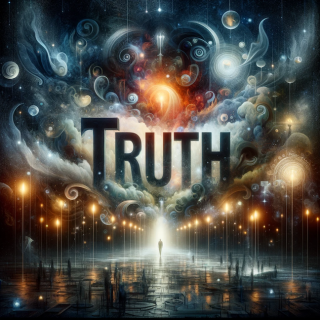Artificial Intelligence
Is Truth a Casualty of Artificial Intelligence?
Personalized LLMs will conjure unique perspectives that offer our truths.
Updated January 18, 2024 Reviewed by Ray Parker
Key points
- AI's evolution toward personalized responses raises questions about the existence of a single "right answer."
- LLMs blur the lines between expert opinion and popular belief, democratizing information access.
- The rise of LLMs creates a gray zone between truth and opinion, influenced by personal biases and context.

The truth, the whole truth, and nothing but the truth.
In the tumultuous discourse around artificial intelligence, the conversation often circles around this quest for the truth or the "right answer." However, a recent discussion with Sam Altman, CEO of OpenAI, suggests a fascinating shift: The move towards highly personalized AI responses. This evolution raises a profound question: Is there a single "right answer" in the context of AI? Let's take a step back.
This relentless pursuit of understanding, the concept of "truth," has always been a beacon of enlightenment, guiding societies through the darkness of ignorance. However, the advent and expansion of Large Language Models (LLMs) are challenging the very fabric of this pursuit, creating a curious and problematic shift in our approach to knowledge and truth.
The Erosion of Traditional Expertise
Historically, experts and thought-leaders were esteemed as the custodians of knowledge, their scholarly perspectives shaping our understanding of the world. Their opinions, deeply rooted in research and experience, were often regarded as definitive. However, as LLMs empower the populace with vast, easily accessible information, the role of these experts is undergoing a radical transformation. The once clear line between expert opinion and popular belief is blurring, leading to an egalitarian but complex landscape of knowledge.
LLMs: Democratizing Knowledge
LLMs democratize information in an unprecedented manner. By synthesizing vast amounts of data, these models offer insights and perspectives that were once the exclusive domain of experts. This democratization, while empowering, also raises crucial questions about the nature of truth and opinion. As LLMs tailor responses based on individual preferences and contexts, the notion of an absolute "truth" becomes elusive.
The Expanding Gray Zone
The crux of this transformation lies in the expanding gray zone between truth and opinion. In this new era, individual cognitive functions and resources are being augmented by AI, enabling a more personalized exploration of knowledge. This expansion is not without its challenges. The personalized nature of LLM responses, while insightful, also means that personal biases and contextual nuances may tint the "truth" one receives.
Navigating the New Landscape of Truth
In navigating this evolving landscape, we are compelled to redefine our understanding of truth. It is no longer a monolithic, universally accepted concept but rather a spectrum of interpretations, each valid within its context. This shift demands a more critical engagement with information, urging individuals to discern between fact, opinion, and the nuanced interpretations offered by AI.
Critical thinking becomes paramount in this new age. With LLMs presenting a multitude of perspectives, the onus is on the individual to evaluate and synthesize these viewpoints. This process is about filtering information and understanding the underlying biases and contexts that shape AI responses.
Embracing Complexity and Uncertainty
The emergence of LLMs as tools for knowledge dissemination is a testament to our technological prowess. However, it also brings us to a philosophical crossroads where the search for truth is no longer linear but a complex web of perspectives. Embracing this complexity and the inherent uncertainty in our quest for knowledge is perhaps our greatest challenge and opportunity. As we continue to explore the uncharted territories of AI-augmented knowledge, the journey toward understanding "truth" becomes a more inclusive, albeit intricate, endeavor.


